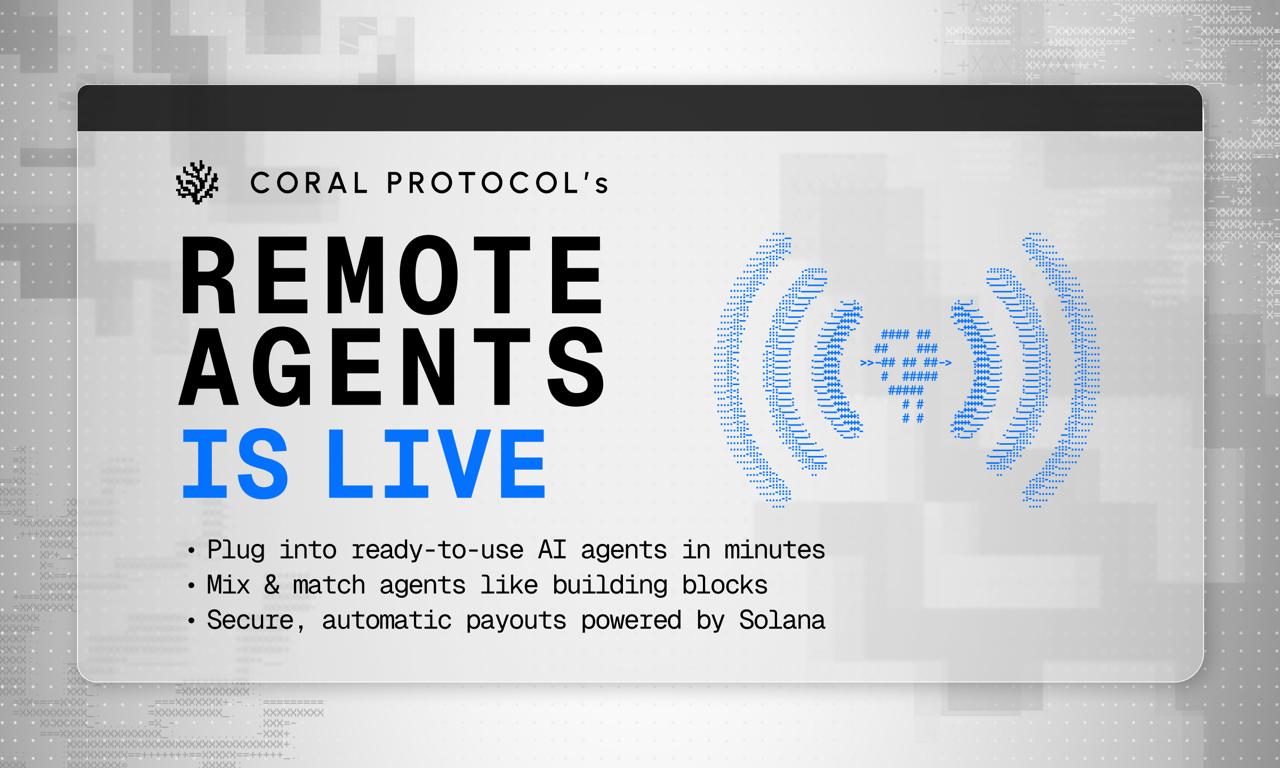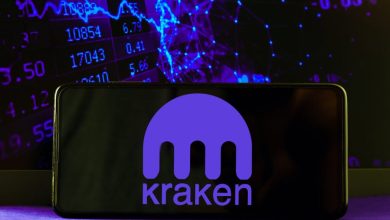Coral Protocol launches Coral v1 with Remote Agents


What is Coral Protocol’s Remote Agents v1 and why does it matter?
Coral Protocol launches with Remote Agents, a breakthrough platform enabling developers to deploy and orchestrate multi-agent AI systems on demand. For the first time, AI agents can be rented, customized, and combined with local agents in a single threaded session — with all actions tracked via Coral Studio’s telemetry suite.
Powered by onchain payments on Solana, the Remote Agents marketplace introduces a decentralized, open ecosystem for agent-based compute — allowing developers to assemble sophisticated, production-ready AI teams in minutes. Agent developers, meanwhile, can list their services in the Coral Registry and earn automated payouts per usage.
Investor Takeaway
How do Remote Agents work, and how is Coral’s approach diverse?
Unlike existing multi-agent frameworks that model agent interaction as simple function calls, Coral Protocol offers an organizational approach: agents are structured like teams, each with a defined role, responsibility, and communication rule set. This enables the development of scalable AI systems that mirror real-world organizational logic.
Key features of Remote Agents v1 include:
- Agent acquisition: Rent and deploy agents instantly from Coral’s registry
- Threaded sessions: Use multiple agents together in one composable workspace
- Onchain telemetry: Track every decision and output within Coral Studio
- Custom rules: Define how agents interact, collaborate, or compete
- Solana-native payments: Seamless fee settlement to agent developers
Investor Takeaway
Why do multi-agent systems matter in AI development?
Multi-agent systems (MAS) simulate specialization and collaboration across diverse AI units — much like how real-world teams function. Coral’s Remote Agents unlock new use cases such as:
- Automated trading bots collaborating with market analysts
- AI customer support teams coordinating via role-based delegation
- Workflow chains for Web3 development — where one agent audits code while another compiles or tests
Until now, MAS frameworks were too complex or tightly coupled. Coral simplifies orchestration by offering plug-and-play agent integration and a monetization layer that rewards open-source agent developers.
Investor Takeaway
How does Coral ensure developer incentives and composability?
Coral introduces a registry-based monetization layer where developers can list agents and automatically receive payouts whenever their agent is used in a session. The settlement layer is built atop Solana’s high-speed infrastructure, enabling:
- Low-latency micropayments for high-frequency agent invocation
- Usage-based royalty models for AI developers
- Onchain agent verification to ensure security and provenance
This ensures a sustainable open-source economy where contributors are fairly rewarded — while enabling end-users to compose best-in-class agents across domains like finance, design, customer service, and devops.
Investor Takeaway
How does Coral compare to LangChain and other agent frameworks?
While LangChain pioneered agent chaining in traditional Python environments, Coral Protocol offers a more decentralized, modular architecture:
| Feature | LangChain | Coral Protocol |
|---|---|---|
| Agent monetization | No native incentives | Onchain payouts via Solana |
| Deployment model | Code-heavy, local | Plug-and-play Remote Agents |
| Threaded sessions | Limited | Full session management via Coral Studio |
| Interoperability | Primarily LLM-focused | Cross-chain, domain-agnostic |
| Customization | Code-defined | Rule-based team logic |
This positioning makes Coral a compelling alternative for Web3-native builders viewking composable, incentive-aligned multi-agent systems — especially those targeting DePIN, DeFi automation, or decentralized coordination.
Investor Takeaway
What’s next for Coral Protocol?
The v1 release of Remote Agents is just the beginning. Coral’s roadmap includes:
- Advanced agent discovery via reputation and usage metrics
- Custom agent marketplaces for verticals (finance, governance, gaming)
- Cross-chain communication between agents operating on diverse networks
- DAO-managed agent teams that function autonomously
By enabling modular, real-time collaboration between autonomous agents, Coral is laying the groundwork for decentralized AI organizations that rival traditional SaaS systems — but are open, composable, and economically incentivized.







